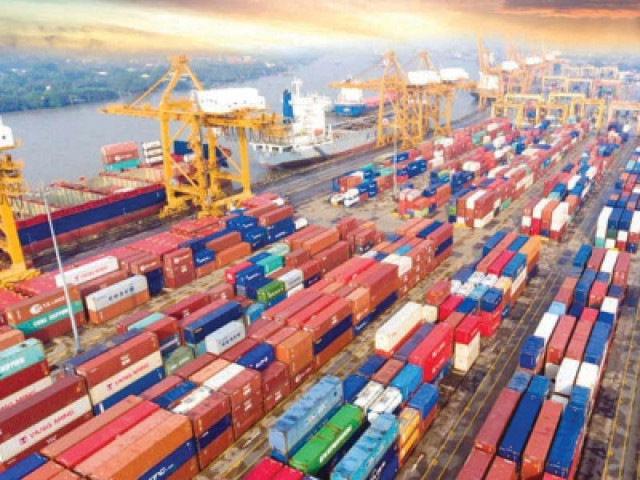Exporters demand competitive tariffs
Fear if incentive is withdrawn, they may not meet existing export orders

Textile exporters on Thursday called on Prime Minister Shehbaz Sharif to take effective measures for sustainable growth of the industry, continue providing regionally competitive energy tariffs, fix concessionary rates of other utilities and manage exchange rates of the US dollar and euro to bring down the cost of raw material imports.
The value-added textile export industry contributed 61% to the total national exports of approximately $28.87 billion in 11 months of fiscal year 2021-22, with textile export share standing at $17.62 billion, Pakistan Apparel Forum Chairman Muhammad Jawed Bilwani said.
“The value-added textile sector is the backbone of the economy, earning the highest amount of foreign exchange and generating the highest urban employment opportunities as it is one of the most labour-intensive industries,” he said.
“Currently, export is the need of the hour to fetch foreign exchange,” textile sector analyst Arsalan Hanif told The Express Tribune. The government needed to focus on increasing exports by providing relief and incentives to the industries to make them regionally competitive, he stressed, adding that in the current environment, maintaining textile exports was a challenge due to the global slump in demand.
“Current economic situation demands immediate support for the growth of economy and exports,” Bilwani said.
In contradiction to the government’s Textile and Apparel Policy 2020-25, the economic team did not consider the continuation of regionally competitive energy tariffs despite repeated requests and appeals by the value-added textile export industry in the pre-budget and postbudget proposals for FY23, he pointed out.
“It is imperative to ensure a level playing field for Pakistan’s textile exporters so that they could compete regionally and globally by reducing the cost of manufacturing in line with the competing countries.”
Read Lack of infrastructure dents mango exports
The continuation of competitive energy tariffs “is crucial for the sustainability and enhancement of exports”.
Furthermore, the utility tariff (water charges) as well as exchange rates of the US dollar and euro should be fixed for exporters so that they could import goods at a reasonable cost to run their export-oriented industries, Bilwani emphasised.
He claimed that the uncertainty surrounding the businesses had restrained the exporters from negotiating new export orders as they could not meet the high manufacturing cost.
Taurus Securities Head of Research Mustafa Mustansir told The Express Tribune that the government had limited fiscal space for doing anything substantial.
“At best, it can continue the regionally competitive energy tariffs.” “Other subsidies demanded by the textile sector seem very hard for the government to accept,” he said.
The value-added textile sector fears that if the competitive energy tariffs are withdrawn after June 30 and the manufacturing cost including utility tariffs and exchange rates is not fixed for the exporters, the existing export orders may be difficult to meet and future orders will not materialise.
Topline Securities’ textile sector analyst Saad Ziker said the government should set energy tariffs and prices of other utilities at its earliest as companies were reluctant to finalise export orders due to the uncertainty about tariff rates.
“As the textile sector contributes the largest share to the overall exports, the exporters will not be able to meet orders due to this uncertain situation,” he said.
Meanwhile, expressing fear that the entire exportoriented textile supply chain may come to a halt, the Pakistan Readymade Garments Manufacturers and Exporters Association (PRGMEA) issued a distress call over the acute financial crisis faced by the industry.
PRGMEA North Zone Chairman Sheikh Luqman Amin stated that the whole industry may break down amid delay in release of sales tax refunds, rising markup rate, soaring fuel and energy costs and worst power shutdown in the country.



















COMMENTS
Comments are moderated and generally will be posted if they are on-topic and not abusive.
For more information, please see our Comments FAQ